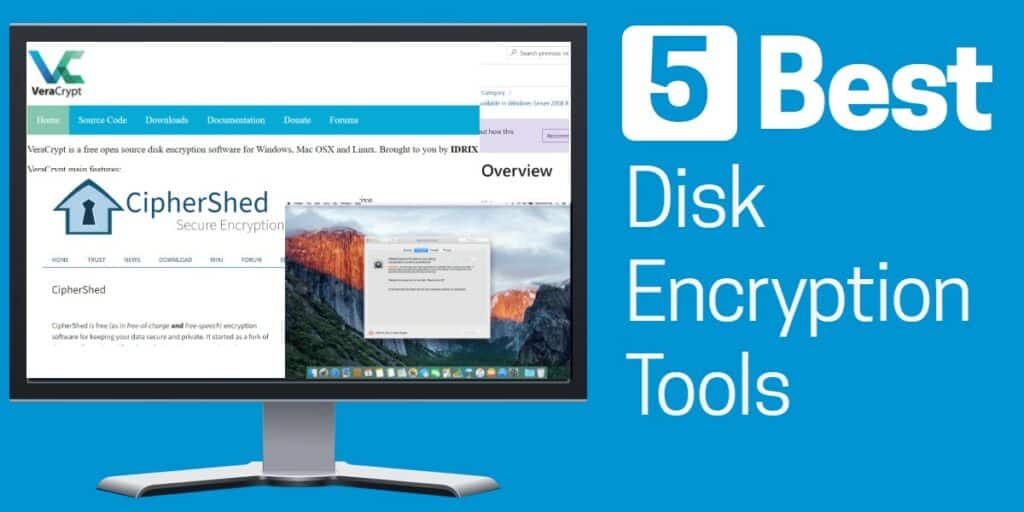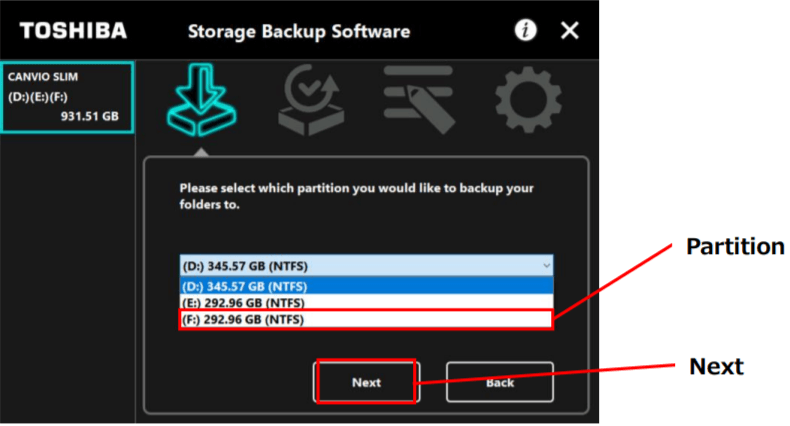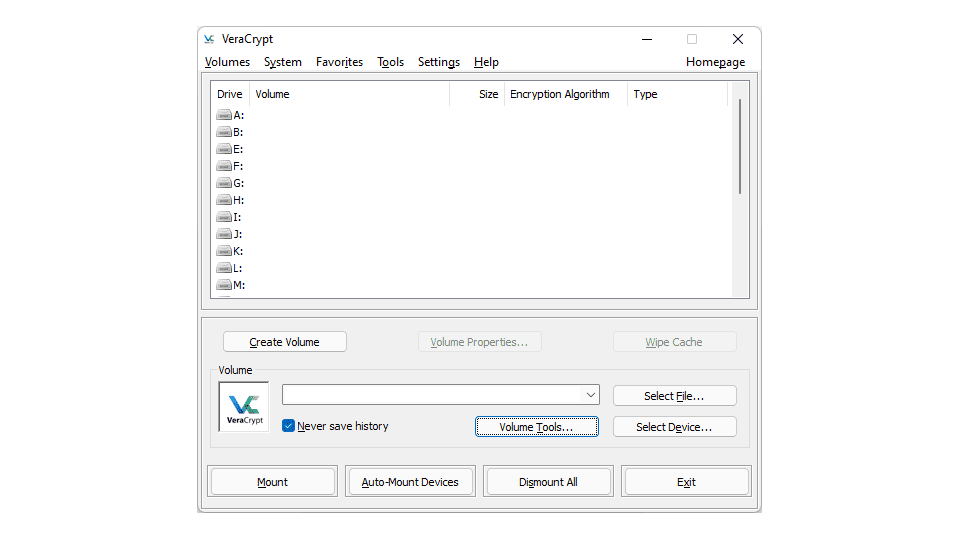Starting with the best encryption software for external hard drive, this introduction delves into the crucial aspects of securing your data with the right tools.
Exploring the factors to consider, types of encryption algorithms, popular software options, and setting up encryption on external drives, this guide covers everything you need to know to keep your data safe.
Introduction to Encryption Software for External Hard Drives
Encryption software is a crucial tool for safeguarding the data stored on external hard drives. By utilizing encryption algorithms, this software scrambles the information on the drive, making it unreadable to anyone without the decryption key.
Encrypting data on external hard drives is essential to protect sensitive information from unauthorized access. Whether it’s personal files, work documents, or sensitive data, encryption adds an extra layer of security to prevent data breaches and maintain confidentiality.
The Significance of Using Encryption Software, Best encryption software for external hard drive
- Preventing Unauthorized Access: Encryption software ensures that only individuals with the correct decryption key can access the data on the external hard drive, keeping it safe from prying eyes.
- Compliance with Data Protection Regulations: Many industries and organizations are required to encrypt sensitive data to comply with data protection laws and regulations. Failure to do so can result in severe penalties.
- Data Integrity: Encryption not only protects data from unauthorized access but also ensures its integrity. By encrypting the data, any tampering or modifications can be easily detected.
Factors to Consider When Choosing Encryption Software

When selecting encryption software for external hard drives, there are several key factors to consider to ensure the security and usability of your data.
Encryption Strength
Encryption strength is a crucial factor to consider when choosing encryption software for external hard drives. Strong encryption algorithms ensure that your data is protected from unauthorized access. Look for software that offers advanced encryption standards such as AES (Advanced Encryption Standard) with a key length of 256 bits for optimal security.
User-Friendliness and Compatibility
Another important factor to consider is the user-friendliness and compatibility of the encryption software with different operating systems. Choose software that is easy to use and integrates seamlessly with your operating system to avoid any compatibility issues. Additionally, consider whether the software allows for easy management of encrypted files and folders without compromising on security.
Reliability and Trustworthiness
It is essential to select encryption software from reputable and trustworthy developers to ensure the reliability of the product. Look for software that has been tested and validated by security experts and has a track record of providing secure encryption solutions.
Avoid using free or unverified encryption software that may compromise the security of your data.
Additional Features
Consider any additional features offered by the encryption software, such as secure password management, file shredding capabilities, or cloud storage integration. These features can enhance the overall security and usability of the software, providing added value for protecting your sensitive data.
Updates and Support
Lastly, consider the frequency of updates and the level of customer support provided by the encryption software developer. Regular updates ensure that the software remains secure against emerging threats, while reliable customer support can assist you in case of any issues or questions regarding the software.
Types of Encryption Algorithms Used in Software

When it comes to encryption software for external hard drives, various encryption algorithms are utilized to secure data. These algorithms play a crucial role in ensuring that sensitive information remains protected from unauthorized access.
Symmetric Encryption Algorithm
Symmetric encryption algorithms, also known as secret key encryption, use a single key to both encrypt and decrypt data. This means that the same key is used for both processes, making it faster and more efficient. However, the challenge with symmetric encryption lies in securely sharing the key between the sender and the recipient.
Popular symmetric encryption algorithms include Advanced Encryption Standard (AES) and Data Encryption Standard (DES).
Asymmetric Encryption Algorithm
Asymmetric encryption algorithms, also known as public key encryption, use a pair of keysa public key for encryption and a private key for decryption. This dual-key system offers enhanced security as the private key remains confidential. While asymmetric encryption is slower compared to symmetric encryption, it eliminates the need to share keys over insecure channels.
Common asymmetric encryption algorithms include RSA (Rivest-Shamir-Adleman) and Elliptic Curve Cryptography (ECC).
Advantages and Disadvantages
- Symmetric Encryption:
- Advantages:
- Fast and efficient encryption and decryption process.
- Ideal for bulk data encryption.
- Disadvantages:
- Key distribution challenge.
- Less secure for key management.
- Advantages:
- Asymmetric Encryption:
- Advantages:
- Enhanced security with separate keys for encryption and decryption.
- No need to share private key.
- Disadvantages:
- Slower encryption and decryption process.
- Complex key management.
- Advantages:
Popular Encryption Software for External Hard Drives

When it comes to securing data on external hard drives, there are several popular encryption software options available in the market. These software solutions offer various features and capabilities to protect your sensitive information from unauthorized access.
VeraCrypt
VeraCrypt is a free open-source encryption software that provides strong encryption algorithms to secure your external hard drive data. It supports multiple encryption algorithms like AES, Serpent, and Twofish, allowing users to choose the level of security they prefer. VeraCrypt also offers features like hidden volumes and full disk encryption for comprehensive protection.
BitLocker
BitLocker is a built-in encryption tool in Windows operating systems, offering encryption for external hard drives. It uses the AES encryption algorithm and integrates seamlessly with Windows, making it convenient for users already using the Windows platform. BitLocker also provides features like secure boot and recovery options for enhanced security.
AxCrypt
AxCrypt is another popular encryption software that offers easy-to-use encryption for external hard drives. It uses strong encryption algorithms like AES-256 to protect your data effectively. AxCrypt also provides features like file shredding and secure sharing options for added security measures.Each of these encryption software options has its own pricing model and limitations.
VeraCrypt is free to use, while BitLocker is included in certain versions of Windows. AxCrypt offers both free and premium versions with additional features in the paid version. Users should consider their specific needs and budget when choosing the right encryption software for their external hard drives.
Setting Up Encryption Software on External Hard Drives
Setting up encryption software on an external hard drive is essential to ensure the security of your sensitive data. By encrypting your external drive, you can protect your files from unauthorized access in case the drive is lost or stolen.
Steps to Encrypt Data on an External Drive
- Download and install the chosen encryption software on your computer.
- Connect the external hard drive to your computer and open the encryption software.
- Follow the software’s instructions to create a new encrypted volume on the external drive.
- Set a strong password for the encrypted volume to prevent unauthorized access.
- Transfer your sensitive data to the encrypted volume on the external hard drive.
Best Practices for Managing Encrypted External Hard Drives
- Regularly back up your encrypted data to ensure you don’t lose any important files.
- Keep your encryption software and operating system up to date to prevent security vulnerabilities.
- Avoid storing your encryption password on the same drive as the encrypted data.
- Securely store your encryption password in a separate location to prevent unauthorized access.
- If you need to share encrypted data, securely transmit the password to the recipient through a separate channel.
Conclusion: Best Encryption Software For External Hard Drive
In conclusion, choosing the best encryption software is essential for protecting your data on external hard drives. With the right software and practices in place, you can safeguard your information from potential risks and unauthorized access. Stay informed and proactive when it comes to securing your valuable data.
General Inquiries
How important is encryption software for external hard drives?
Encryption software is crucial for securing data on external hard drives as it prevents unauthorized access and protects sensitive information from potential breaches.
What factors should I consider when choosing encryption software for an external hard drive?
Key factors to consider include encryption strength, user-friendliness, compatibility with operating systems, and the overall security features offered by the software.
What are the common encryption algorithms used in encryption software for external hard drives?
Common encryption algorithms include symmetric and asymmetric encryption. These algorithms have their advantages and disadvantages in terms of security and performance.
Can you recommend some popular encryption software options for external hard drives?
Popular options include VeraCrypt, BitLocker, and AxCrypt, each offering unique features and capabilities to secure your data effectively.
What are the best practices for managing and maintaining encrypted external hard drives?
Best practices include regularly updating the software, creating strong passwords, backing up your data, and being cautious with sharing access to encrypted drives.
